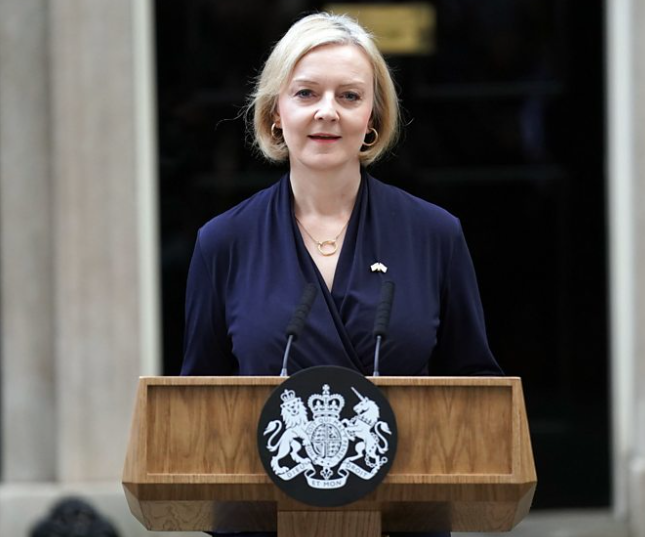
British Prime Minister Liz Truss resigned after her questionable and already reversed economic plan sent the pound plunging and put her government into chaos.
The most criticized part of Liz Truss's plan was her liberal fiscal policy, which according to estimates, would cost some 43 billion pounds ($48 billion). Proposed with an aim of boosting economic activity, these tax cuts stressed the financial markets and led the Bank of England to step in to prevent a wider economic crisis. There are opinions, however, that the economic policies were sound but poorly negotiated and, probably, untimely. That could be the reason for the overreaction.
The resignation of PM came after her Chancellor of the Exchequer (the Finance Minister role in UK), Kwasi Kwarteng was dismissed and the new Chancellor, Jeremy Hunt, rolled back virtually all of her economic proposals.
Having been formally appointed by Queen Elizabeth II on Sept. 6, just days before the monarch’s death, Truss is now by far the shortest-serving prime minister in British history and will be remembered as one of the most calamitous.
Liz Truss was in office for just 44 days, making her the shortest-serving prime minister in British history.

